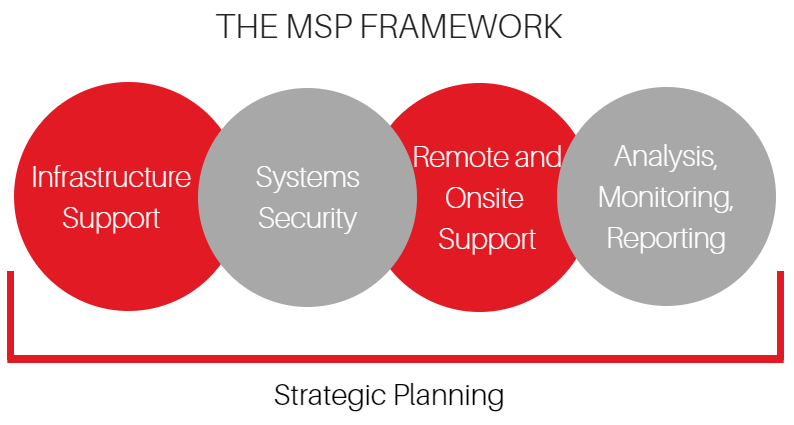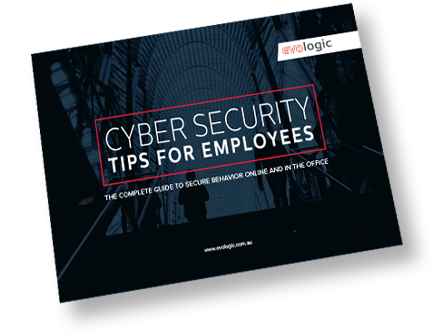When considering IT support options, the options aren’t limited.
Do you give it a go yourself? Do you hire an in-house IT person? Do you engage an IT contractor? Or, do you look to partner with a Managed Services Provider?
Each have their own pros and cons, however, being a Managed Service Provider (MSP) ourselves, we are well aware of the questions and misconceptions circling about MSP’s, and how they work.
So, instead of writing a very convincing article about why we are so fabulous at what we do, we thought we’d clear the air on what it means to have a partnership with a MSP!
Misconception # 1: Managed Services are just an alternative to an “all you can eat” pricing scheme
The MSP model is a paradigm shift from reactive to proactive support. This means one of the key focuses of an MSP is to constantly work to make sure your IT doesn’t fail, while ensuring it is performing at its optimum at all times, rather than waiting for something to break and billing you for fixing it.
Beyond keeping your IT lights on, MSP’s that standout make providing sound business value their job. Adopting a partnership approach, these providers will work closely with their customers to understand their business, and provide strategic thinking that looks to align technology with the business plans.
The key take way to keep in mind here is that, in a Managed Services approach, the concept of win/win needs to be present. The best offering will include a service that provides a high level of business availability paired with strategic thinking and advice, at a cost that is considered less than the cost of downtime and consulting packages.

Misconception # 2: MSP’s are the same as cloud providers
Often a no-brainer for SMB’s, cloud technologies is now considered the new normal. However, don’t be mistaken! Regardless of how you are consuming your IT infrastructure services, the requirement for someone to oversee it doesn’t go away.
Being in the cloud essentially means someone else is providing elements of the computing environment that you would be otherwise purchasing and managing in your own building (or leasing and putting on a datacentre = same/same).
The usual tasks carried by an MSP, such as monitoring, patching, remediation and reporting are just as needed in a cloud computing environment.
So, regardless if you are moving to the cloud, not moving to the cloud or considering cloud, the tip here is to make sure you understand and review who is responsible for managing your IT infrastructure before assuming someone else has taken responsibility for it.
Misconception # 3: Only large companies can afford to outsource IT
SME’s in particular can benefit from MSP’s as the outsourcing model allows for cost savings and predictable billing, as well as the long-term benefits of having your IT functioning at its peak.
Lack of proactive maintenance tends to be a recipe for disaster in the world of Technology. Eventually, things will break, leading to very expensive IT bills and extended amounts of downtime.
By partnering with an IT provider, you can receive the benefits of premium IT performance, as well as avoiding the break downs and downtime. Best of all? There is no need to play the guessing game with how much your IT will cost you, it is all taken care of in a monthly payment, making it the ideal solutions for the SME’s!
Misconception # 4: It is more expensive to outsource IT than hire an internal staff
The business model of an MSP allows for businesses to benefit from a team of high qualified individuals, who are constantly looking to upskill in their field. This, usually leads to the conclusion that a Managed Services Provider would, therefore, cost more than an internal IT employee. Right? Wrong!
What many business leaders tend to ignore is the fact that, the cost of hiring an internal IT employee goes beyond their salary. There are other factors to account for here, including taxes, insurance, overheads etc.
Beyond just cost, ongoing training is also another point to take into consideration.
An internal IT staff will be limited by how much learning they can do, which tends to limit the amount of leverage a business can get from technology.
This list is by no means exhaustive, but rather the top four questions we often get asked when engaging with businesses. In considering an IT partnership, be sure to apply a rational thought that goes beyond the technical role of the MSP, think about it in terms of business outcomes.
If you are seeking guidance on building a relationship with an MSP, Evologic might be able to help! Get in touch with us and see how we can help start a positive change in your technology transformation.


